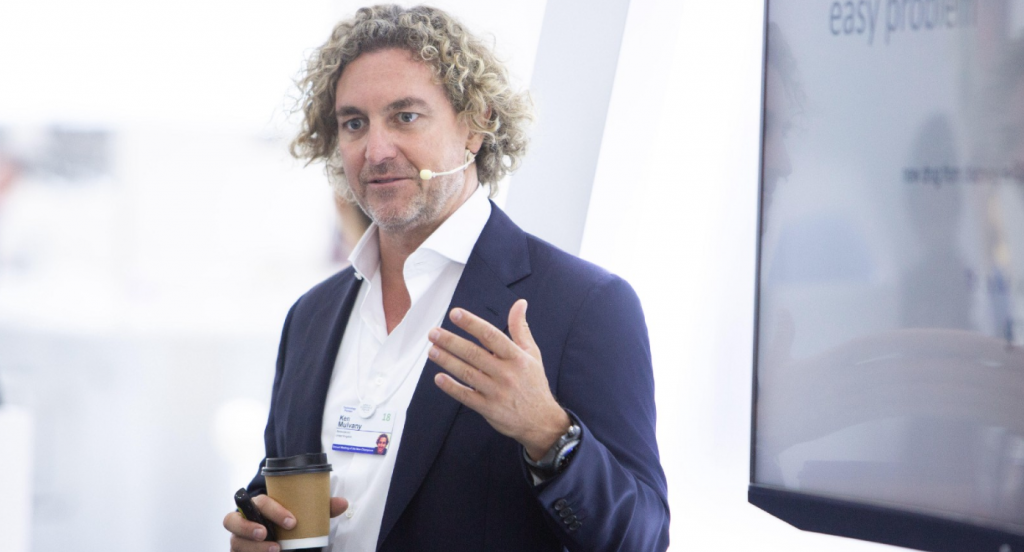BenevolentAI: Bringing Innovation in the Field of Bioscience
Artificial Intelligence is a wonder that people would have laughed about two decades ago, but today, this technology is attracting almost every other type of field. In the past, futuristic sci-fi movies did give us a glimpse of AI in the form of flying cars and automated homes, etc. But we did not know that this technology will be here so soon, making a mark in every category in the world. After bringing a revolution in the field of technology, automobile, and more, medicine and pharmaceutical companies are also up for investing in AI and machine learning to make their research and drug discovery even better and faster. One such drug discovery startup is BenevolentAI.
BenevolentAI
BenevolentAI is a London-based drug discovery startup, that has adopted Artificial Intelligence and machine learning to speed up medicinal research and reduce the overall cost to half. The company was founded by Ken Mulvany on 13 November 2013, in London with co-founders Michael Brennan and Ivan Griffin. It uses AI technology such as pattern recognition to find a match for existing genetic, metabolic, and clinical information in order to develop new drugs. According to the founder, the drug discovery industry has a vast amount of information, that is impossible to handle by humans alone, so using AI, this information can not only stored but also be used to target different diseases.
Most of the clinical trials are focused on hypotheses for a particular disease, but with the AI technology at BenevolentAI, the existing research is used for finding a new disease to target and for which the existing hypothesis fits the best. This way there is no waste of time in discovering a new compound from scratch, but the drugmakers can jump straight to the clinical trials to find new drug candidates from existing information. The company uses AI combined with the expertise of qualified scientists to make sure that the end result is effective.
Ken Mulvany founded the company with a target to find a cure for ALS and Alzheimer’s using AI, and in 2021, the company will also be starting clinical trials for excessive daytime sleepiness in Parkinson’s disease in the US. The company currently has got 90 people working for it in the UK and US. In September 2016, only after four years of its founding, it raised $1.4 billion, becoming a unicorn. In 2018, the company raised another $115 million and valued at $2 billion. Benevolent AI has also acquired the UK operations of Proximagen for an undisclosed sum.
Idea Behind BenevolentAI
BenevolentAI is a machine intelligence company with an aim to develop drugs for every existing disease in the world with the help of artificial intelligence. The company is focusing on using AI to mine and analyze the already existing biochemical information to develop new drugs for the diseases. According to Jackie Hunter, the Board director at BenevolentAI, every 30 seconds a research paper is published, and 95% of them fail. There is vast information about discovery and research for drugs that are going in vain. It takes about ten years and over $2.5 billion to develop, test, and get ‘the drug’ for a particular disease, but with AI and machine learning the time and the cost of producing a drug can be reduced by 30% to 50%.
BenevolentAI collects the already existing drug research data that was for a particular condition but could not yield the desired results. Though the research might have failed for a certain disease, BenevolentAI uses the same research and clinical trials data to test for other diseases, such that the deep research will not go waste, and the existing information is used to find new drug candidate for other diseases.
The Founder
Ken Mulvany has got more than 20 years of experience as an entrepreneur and investor. Currently, he sits as the Chairman of BenevolentAI. Before Benevolent AI, Mulvany also founded another biotech company named Proximagen and served as the CEO of the company. Proximagen was into developing the drugs for central nervous system disorders. Mulvany sold Proximagen in 2012 to Upsher-Smith Laboratories for $553million.

Today, Mulvany is a member of various advisory boards of different organizations, including the UK Government on Artificial Intelligence and the Oxford Sciences Innovations advisory boards. Apart from that, he chaired the Trustees of the Cure Parkinson’s Trust and is also a member of the All-Party Parliamentary Group on Artificial Intelligence.

Yashica is a Software Engineer turned Content Writer, who loves to write on social causes and expertise in writing technical stuff. She loves to watch movies and explore new places. She believes that you need to live once before you die. So experimenting with her life and career choices, she is trying to live her life to the fullest.
